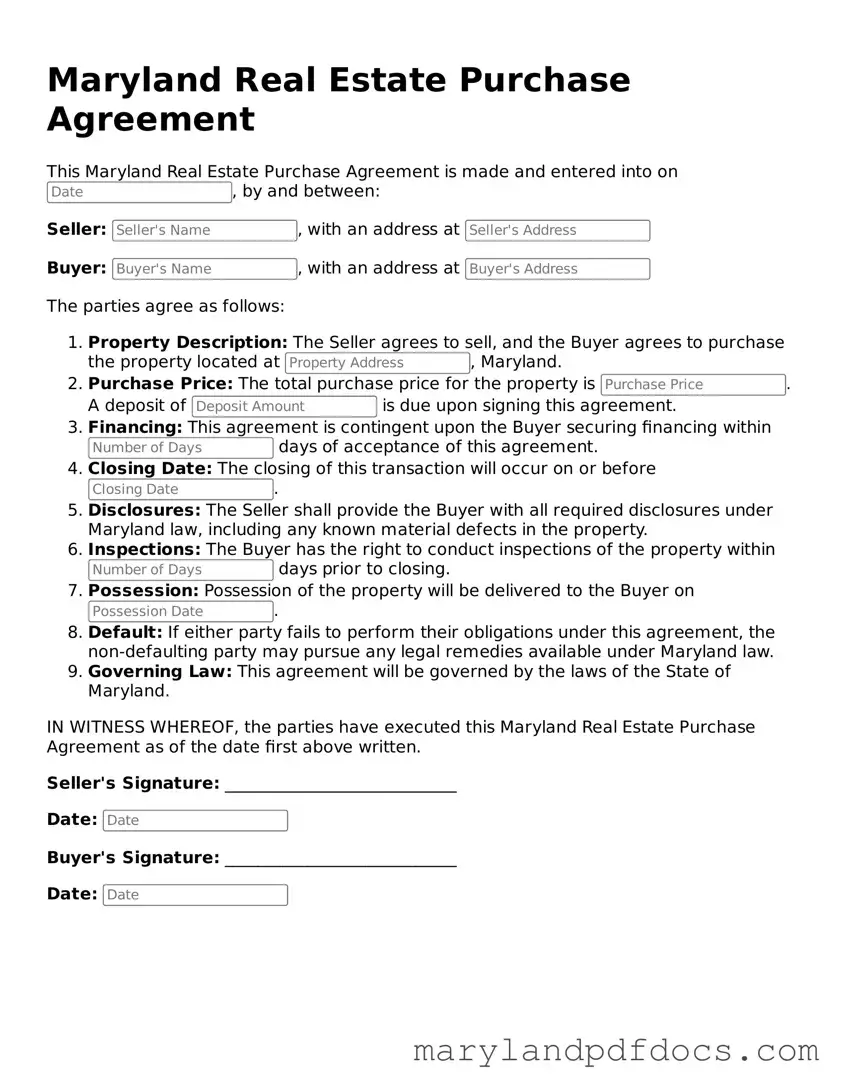What is a Maryland Real Estate Purchase Agreement?
The Maryland Real Estate Purchase Agreement is a legal document that outlines the terms and conditions under which a property is bought and sold in Maryland. This agreement serves as a binding contract between the buyer and the seller, detailing the specifics of the transaction, including the purchase price, contingencies, and closing date. It is essential for both parties to understand the contents of this document, as it protects their rights and obligations throughout the transaction process.
What key elements should be included in the agreement?
A comprehensive Maryland Real Estate Purchase Agreement should include several key elements. These typically consist of the names of the buyer and seller, the property address, the purchase price, and any contingencies such as financing or home inspections. Additionally, it should specify the closing date and any inclusions or exclusions regarding property fixtures or appliances. Clarity on these points helps prevent misunderstandings and disputes later on.
How do contingencies work in the agreement?
Contingencies are conditions that must be met for the sale to proceed. Common contingencies in Maryland include financing, home inspections, and appraisal contingencies. For instance, a financing contingency allows the buyer to back out if they cannot secure a mortgage. It’s crucial to clearly outline these contingencies in the agreement to ensure that both parties are protected if certain conditions are not met.
Can the agreement be modified after it is signed?
Yes, the Maryland Real Estate Purchase Agreement can be modified after it is signed, but both parties must agree to any changes. Modifications should be documented in writing and signed by both the buyer and seller to ensure they are enforceable. This process helps maintain transparency and clarity throughout the transaction, especially if circumstances change.
What happens if one party breaches the agreement?
If one party breaches the Maryland Real Estate Purchase Agreement, the other party may have several options. They can seek specific performance, which means they ask the court to enforce the agreement as originally written. Alternatively, they may choose to terminate the agreement and seek damages. Understanding the implications of a breach is vital, as it can lead to significant legal and financial consequences for both parties.
Is it advisable to hire a real estate attorney when using this agreement?
While it is not legally required to hire a real estate attorney when using the Maryland Real Estate Purchase Agreement, it is highly advisable. An attorney can help ensure that the agreement is properly drafted, review contingencies, and provide guidance throughout the transaction process. Their expertise can be invaluable in preventing potential pitfalls and protecting your interests in a real estate transaction.

